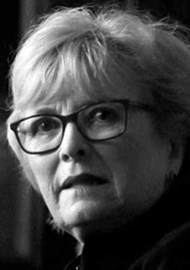Essay Prizes have long been a way in which charities educate the next generation of doctors about conditions which are not well-known. The talented, medical-student winner can pocket a small sum of money but, more importantly, gain huge kudos for the CV, which helps enormously when competing for a place on a specialist training programme.
Esme’s Umbrella (www.charlesbonnetsyndrome) has just announced the world’s first Charles Bonnet Syndrome Essay Prizes. One is for medical students and the other for optometry or orthoptics’ students or nurses.
The winner of each will receive £125, the deadline is 1st May and the prompt is ‘An interesting angle on this condition would be welcomed’.
Esme’s Umbrella is the only Charity dedicated to raising awareness of Charles Bonnet Syndrome (CBS), supporting people who develop the condition and sourcing funding for vital research.
CBS is an incredibly common condition but not well known nor researched. It is estimated that there are, at least, one million people in the UK who live with the vivid, silent, visual hallucinations which can develop after significant sight loss. It is not a mental illness but, by its very nature, can be a catalyst for depression and suicidal thoughts.
There is a woeful lack of awareness of Charles Bonnet Syndrome among medical professionals, highlighted by a recent survey, commissioned from 72Point (www.72Point.com) by Esme’s Umbrella. Mis-diagnosis is leading to patients being ushered down the mental health route and the elderly finding themselves in dementia units – with no way out.
Not only is mis-diagnosis a waste of precious NHS resources but it adds another layer of distress to the person already living with uninvited images.
CBS lay in the shadows from 1760 - when Charles Bonnet documented what was happening to his grandfather – until Professor Dominic ffytche, of King’s College London, began his CBS work in the 1990’s. Bonnet knew that his grandfather was ‘of sound mind’, so concluded that the visual hallucinations must be to do with his sight loss.
Professor ffytche is the sole, globally-acknowledged expert on CBS and visual hallucinations of all types. His work has debunked the myths surrounding this condition, proving that CBS can be experienced by children as well as adults - not just the elderly; that the visual hallucinations do not disappear after 18 months; that it is not just macular degeneration that causes CBS, but any condition or injury that affects the optic nerve/pathway; and that the images are not always beautiful.
Since the launch of Esme’s Umbrella in 2015, not only has the charity sourced research funding, but UK’s Universities now lead the world in CBS research and the WHO has given CBS a code in ICD11. Yet there are still too few doctors and healthcare professionals aware of the condition and too many people living with undiagnosed CBS, confiding in no one because they fear they are losing their minds.
Educating the next generation – no matter which medical speciality they adopt - to understand the impact that CBS has on the person who develops the condition, the special kind of loneliness experienced, plus the helplessness and frustration of family and friends, is vital.
Judith Potts is the Founder of Esme’s Umbrella. At the launch of the two Essay Prizes, she said “We are pinning our hopes on the UK’s medical, optometry and orthoptics’ students to join Esme’s Umbrella in bringing Charles Bonnet Syndrome out of the shadows. Everyone who takes part will have educated themselves about a condition which has been ignored for too long. We hope that these Essay Prizes will inspire research, creativity and originality presented in 1000 words.’




